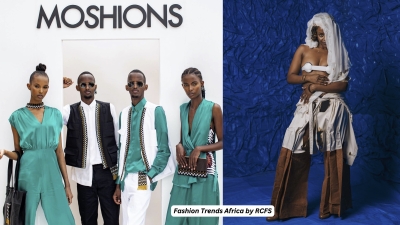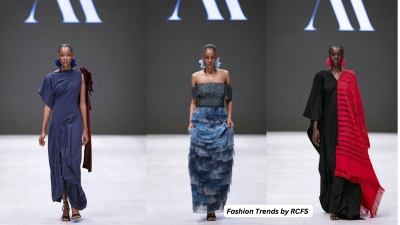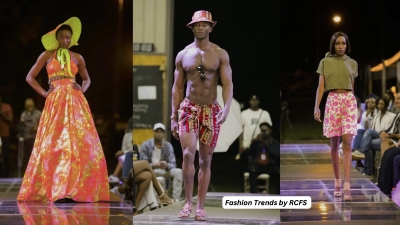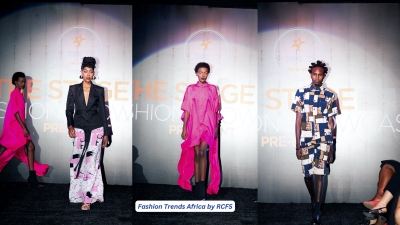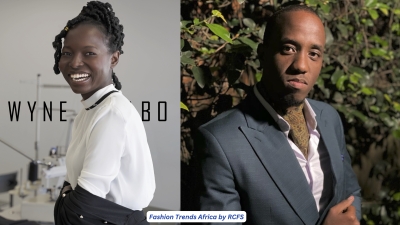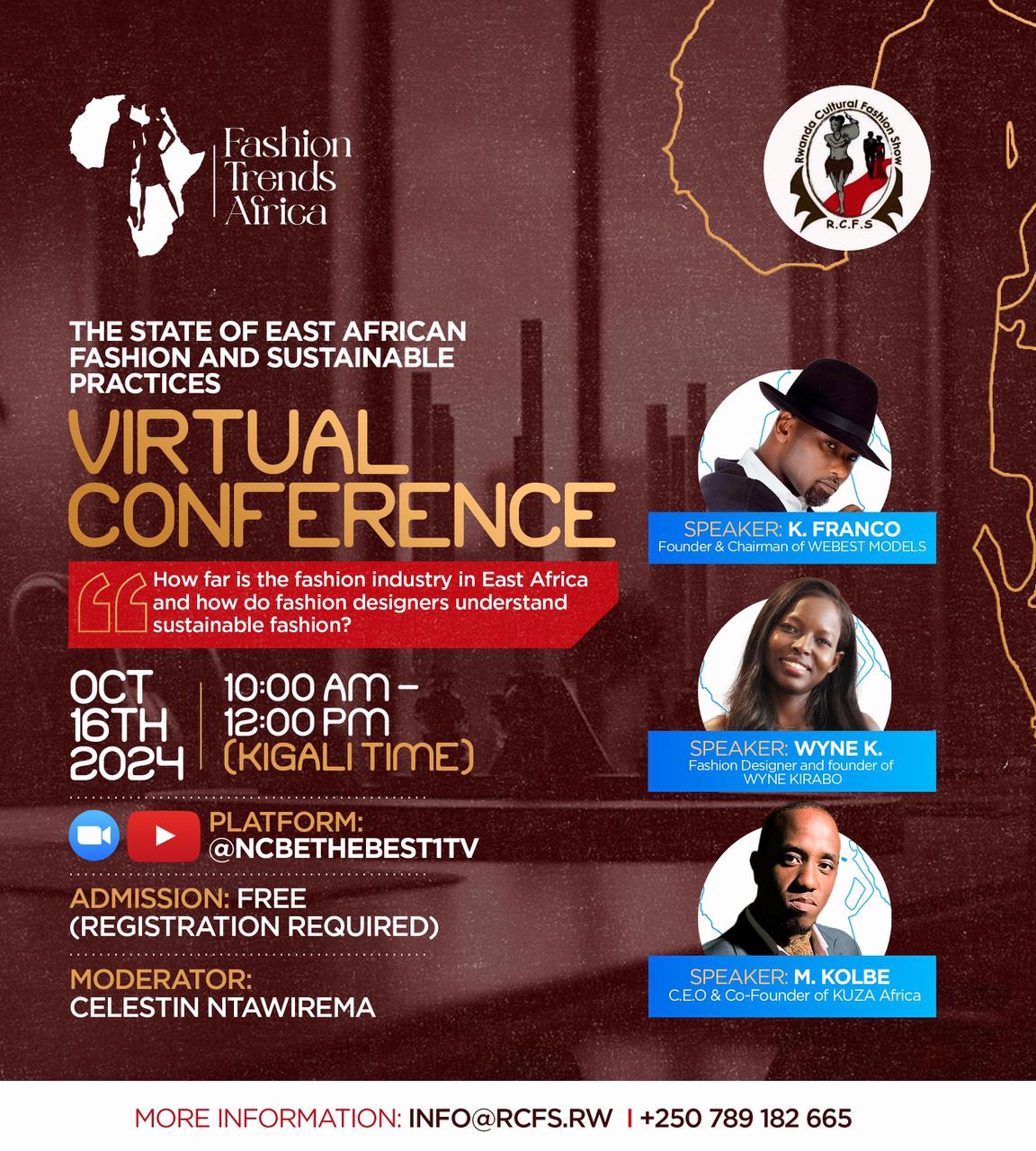![Cotton Yarns [PHOTO ELISABETH]](/media/k2/items/cache/de2df791682f079f8397226a3ff38bc7_L.jpg) Cotton Yarns [PHOTO ELISABETH]
Cotton Yarns [PHOTO ELISABETH]
Is Recycled Cotton Sustainable: What it is and All the Advantages of This Fabric?
“No new land is required in recycling cotton. We all know that cotton is a crop that requires vast amounts of land, often leading to habitat destruction and biodiversity loss. Recycled cotton reuses existing materials” Fashion and Textiles expert says

Cotton farming [PHOTO NT]
With increasing concern about the environmental impact of the fashion industry, more brands and consumers are looking for sustainable fabric alternatives. Recycled cotton has emerged as one promising eco-friendly option. But what exactly is recycled cotton and how does it stack up in terms of sustainability?
Over the years, an increasing focus on the theme of sustainability and environmental impact has revived ancient techniques of fabric recycling that were fading away. This is how recycled cotton is born.

Old and second hand clothes to be recycled [PHOTO NT]
ALSO READ: HOW FAR IS THE AFRICAN FASHION INDUSTRY? POTENTIAL, SUSTAINABILITY, AND CHALLENGES
Why does Cotton matter in the fashion industry?
Cotton is a natural and biodegradable fiber, and its traditional cultivation and harvesting practices require the extensive use of many resources and harmful inputs, such as the intensive use of hazardous pesticides. It is made from the natural fibers that grow in the bolls of the cotton plant.
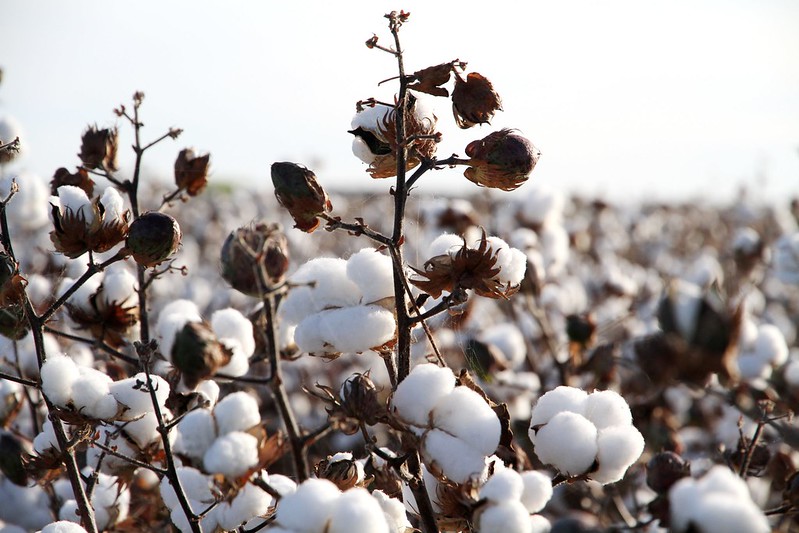
Cotton ready to be harvested [PHOTO NT]
The fibers are basically cellulose polymers. The unique twisted, convolutions structure of cotton fibers gives cotton its special qualities like strength, absorbency, and breathability. Also, cotton is highly absorbent due to the presence of many hydroxyl groups in its cellulose molecules. This allows cotton to absorb and release moisture quickly. Cotton is an integral part of our everyday lives: it is the second most used fiber by the textile industry and is used across multiple categories of clothing, home textiles, and accessories. You might even be wearing something made of cotton right now. But have you ever stopped to consider whether this cotton is recycled? And if it were, would you be able to tell?

T-shirt made out of recycled cotton [PHOTO NT]
As the world becomes more and more aware of the textile waste crisis, and legislation coming into place to try to slow it down, it is important to understand the concepts within recycled cotton and the nuances you can come across.

People harvesting cotton [PHOTO NT]
According to fashion and textiles experts, there are many advantages of recycled cotton starting with the water usage in the process where it reduces water and energy use growing conventional cotton which is extremely water-intensive, with one kg of cotton requiring up to 20,000 liters of water. “Recycled cotton skips this agricultural stage, eliminating the tremendous water footprint. It also requires much less energy since there is no need for crop production and raw material processing” an Expert says

Cotton pieces to be recycled [PHOTO NT]
“When we recycle cotton fabrics and old clothes, it reduces waste and pollution an estimated 15% of fabric intended for clothing ends up as waste on the cutting room floor. Recycling captures this waste along with post-consumer cotton products and diverts it from landfills, incinerators, and the environmental pollution associated with them” Experts say
ALSO READ: AS EGYPT’S ECONOMY DIPS, SUSTAINABLE FASHION SOARS
Market Overview
The recycled cotton market comprises three main types: purified cotton, cotton blend, and others. Purified cotton refers to recycled cotton that has been extensively processed and refined to remove impurities, resulting in a high-quality and pure end product. Cotton blend involves the combination of recycled cotton with other fibers like polyester or viscose, leading to enhanced durability and functionality. The “others” category encompasses various recycled cotton products not falling under purified or blend types, such as mixed fiber textiles or innovative uses of recycled cotton in non-textile applications.
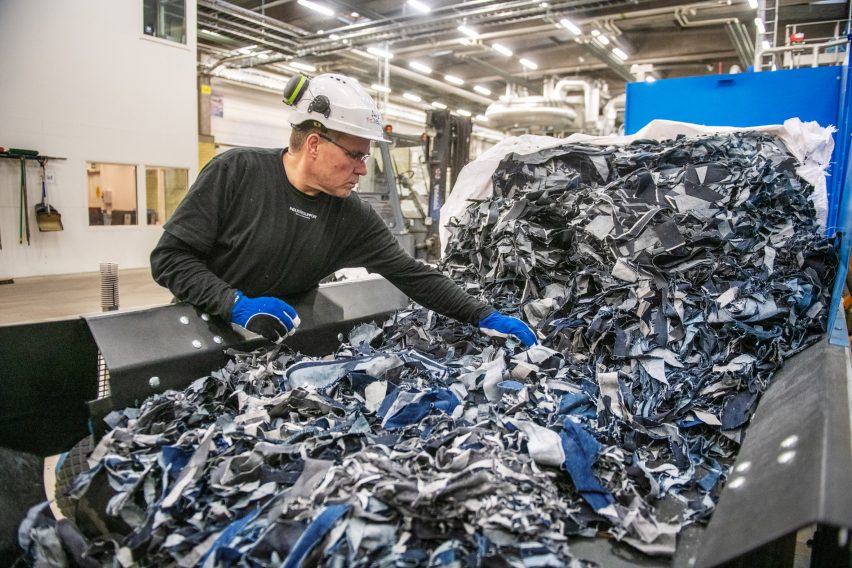
Sorting out different fabrics made of cotton to be recycled [PHOTO NT]
Recycled cotton had an estimated production volume of 300,000 tons in 2022, accounting for approximately 1% of total cotton production worldwide. This contrasts deeply with the approximately 25 million tons of virgin cotton produced annually. However, the demand for recycled cotton is anticipated to increase in the coming years.

Sorting out different fabrics made of cotton to be recycled [PHOTO NT]
The Scaling for Circularity Report highlights that Bangladesh, one of the major textile manufacturing hubs globally, generates around 330,000 tons of post-industrial cotton waste annually. Currently, only 5-7% of this waste is recycled into new fiber, leaving a huge opportunity untapped to close the loop and increase the recycling of this category of products, instead of downcycling it, incinerating it, or sending it to landfill.

Recyled cotton [PHOTO NT]
As the demand for recycled cotton is predicted to grow, it is important for consumers and professionals of the fashion and textiles industry to understand the differences in cotton recycling methods.
The major cotton producers are China (with about 5 million tons/year), the United States (with 4 million tons/year), India (2.5 million tons/year), followed by Egypt, Pakistan, Uzbekistan, Turkey, Australia, Argentina, Brazil, Greece, Sub-Saharan Africa, and South America, each with smaller shares.
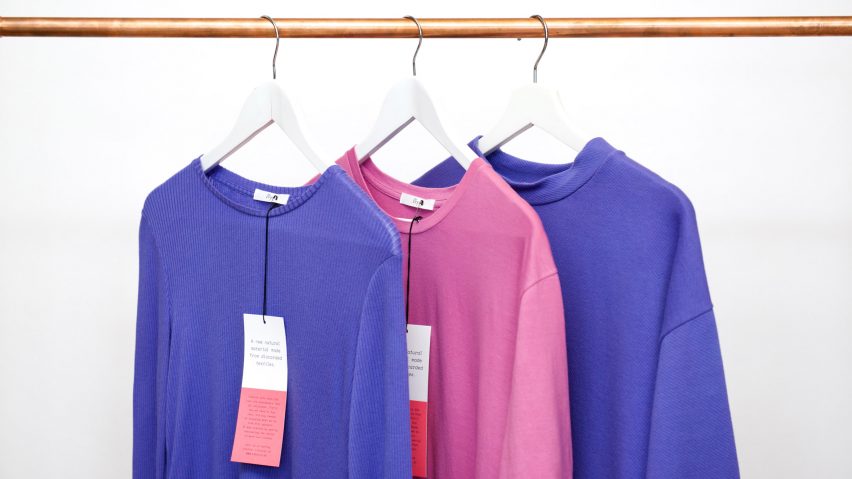
Clothes made out of recycled cotton [PHOTO NT]
Given such a low starting fiber value, it is evident that recycling represents an additional cost and not an economic advantage. Recycling costs more than intensively cultivating cotton, which benefits from economies of scale, and this should not be surprising. In the costs of textile recycling, one must always consider manual selection of scraps, color sorting, and the resulting industrial process.

Clothes made out of recycled cotton [PHOTO NT]
The choice to purchase recycled cotton garments cannot be dictated by price advantage but by the desire to change one's approach and try to reduce one's impact on the environment. As always, the most sustainable choice for the planet is not necessarily the most economical for those of us who inhabit it.
Latest from RCFS
- 9 Years Milestone: Moses Turahirwa and His Moshions Brand Rwanda-Based
- 9 Years Milestone: Moses Turahirwa and His Moshions Brand Rwanda-Based
- What to Expect in Lagos Heineken Fashion Week 2024: Runways Kick off Today
- What to Expect in Lagos Heineken Fashion Week 2024: Runways Kick off Today
- Storytelling Meets High Fashion at The Kenya Fashion Story 2024



